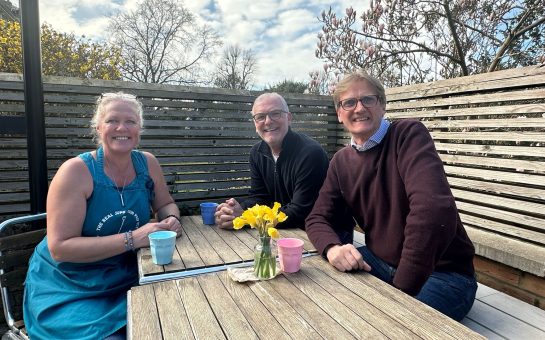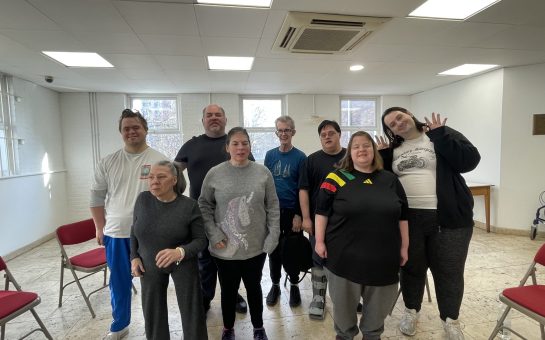By Dylan McCullagh
May 1 2020, 17.00
Follow @SW_Londoner
A Kew Gardens Rotary Club member won a national Champions of Change 2020 award for outstanding humanitarian and community service for supporting water projects in the Kenyan drylands.
In the 1980s, James Onions joined Kew Gardens Rotary club, unaware that more than 30 years later his work there would win him a Champions of Change 2020.
Mr Onions joined Rotary because he wanted to socialise but to ‘do something more than just meet up occasionally’. He discovered sand dams in 2010 when then head of Excellent Development Simon Maddrell gave a talk to Kew Rotary, which inspired him to take action.
“Not many people have heard of sand dams and what their potential is in the world,” Mr Onions says with a succinct sell. “It’s simple, it’s sustainable, it’s effective.”
Mr Onions was the catalyst who led more than 200 Rotary clubs to fund 61 sand dam projects since 2010, giving more than 100,000 people clean water access for life at a cost of about £10 per person.
The harvesting of water and food is a common hardship in the Kenyan drylands, where he remembers talking with the people he has helped empower.
The daily quest for water there takes six to 12 hours, draining precious time away from farming, cooking and education. It’s a routine that’s become a burden.
Home to 2.3 billion people, drylands cover 40% of the earth’s land surface and support 74% of the world’s poorest people across 110 countries.
Rural dryland communities are threatened by a lack of access to clean, local water. When this caught Mr Onions’ attention, he decided to do something about it.
He said: “I recall being out there about eight years ago, and sat on the side of a sand dam, a young guy in the group there said: ‘You’re only doing this because you’re guilty about climate change.’
“I hadn’t even thought about climate change at that stage, it wasn’t a big thing on our agendas. What was big on our agendas was that people were going without water and going without food.”
What is a sand dam?
Sand dams combat water scarcity in often poverty stricken dryland communities.
In Kathonzweni, locals have experienced a fall in water-related illnesses because they no longer draw water from the area’s polluted river channel. When stored in a sand dam, water is protected from animal contamination and disease transmitters, such as mosquitoes.
Trees can now be grown, which prevents soil erosion and land degradation. Free time is invested into farming. Families have enough food and diets improve. Income from the sale of crop surplus keeps children in school and is reinvested locally.
In Mbooni East farmers now grow French beans for the export market. Other communities earn enough money to start small-scale loaning schemes.
Eunice Katumbi, from Kakai, Kenya, feels empowered by the sand dam’s riches. “We are holding millions in our very own hands,” she said.
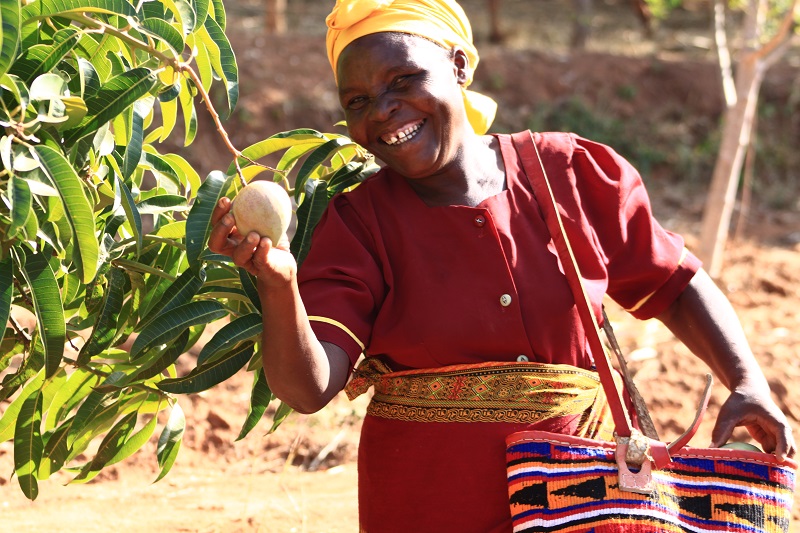
He partnered Rotary with the UK’s Excellent Development and Kenya’s Africa Sand Dams Foundation (ASDF) – NGOs specialising in sand dams – and provided funding for projects, which are initiated by Kenyan community self-help groups seeking support.
Mr Onions said: “It wasn’t a bunch of people coming in from outside going ‘do this, this and this’. It was the local community saying ‘we want one of these, we want to do this’. At any one time there’s probably a queue of about 500 communities wanting one of these dams.”
On average, self-help groups are 70% women.
ASDF director and co-founder Cornelius Kyalo said: “What I enjoy most is when I see the rural women being able to have access to water, feed their families and live in a cohesive way within the community.
“Women are tasked with water collection, together with the young girls, so you really relieve a burden when you enable them to have access to water.”
Excellent Development’s chief operating officer Judith Eaton has led volunteer expeditions to sand dam builds and finds the atmosphere inspiring.
“One youngster said she was hoping to become an environmental teacher,” she recalls.
“Another said they feel like they’ve got a brighter future. It was really fantastic hearing from the younger generation of the hope that they felt as a result of having access to water.”
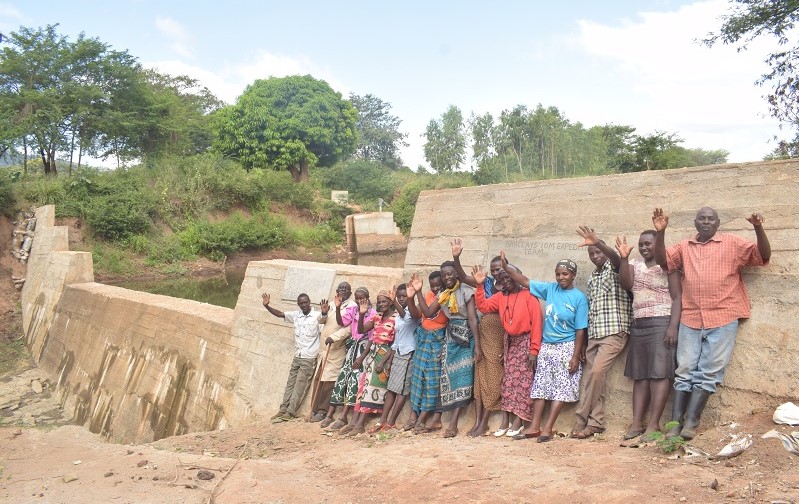
Sand dams see communities through droughts and create resilience in the face of a changing climate.
Mr Onions said: “They are so aware of the way the climate is changing because they’re experiencing it. It does a lot about improving the environment and reversing climate change in that specific area, so it’s very much a microclimate impact. If you’ve got enough sand dams you’re going to have a big effect.”
He supports Excellent Development’s target of influencing the implementation of 1 million sand dams for half a billion people by 2040, and calls on governments and those with deep pockets to act.
But he remains humble in his recognition, calling it a team effort, knowing this work is far from finished.
“I’m obviously very pleased. It makes me feel that there’s probably another two billion people out there that we’re not getting to,” he said.
“This can actually help them stand on their own two feet and do the things they want to do, and that has to be the way forward.”
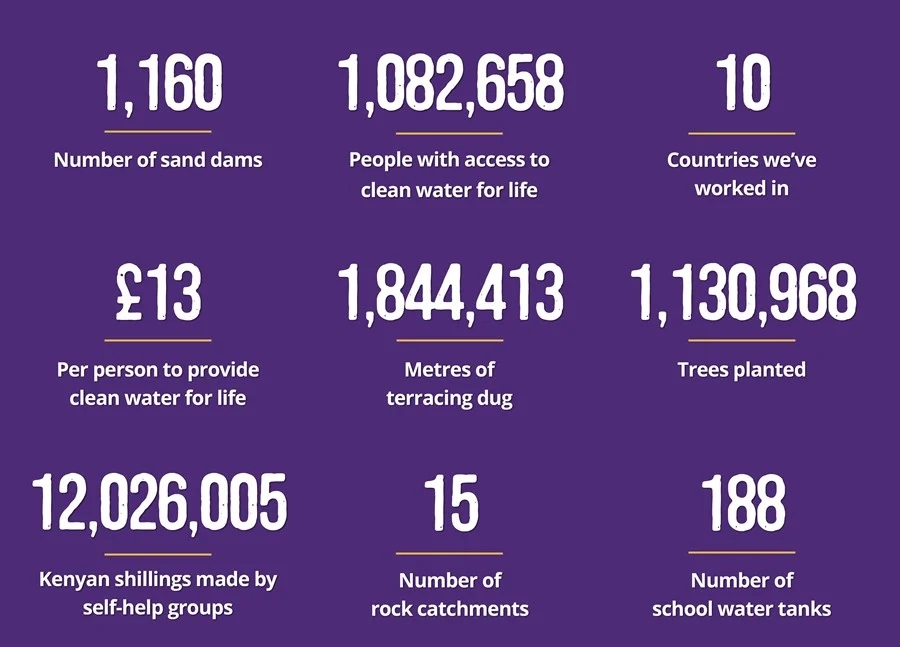
Rotary’s Champions of Change award ceremony was due to take place on May 2 and is postponed due to the coronavirus lockdown. Featured image shows water being drawn from a sand dam tap in southeast Kenya. Photo credits: Dwain Lucktung at Excellent Development.
